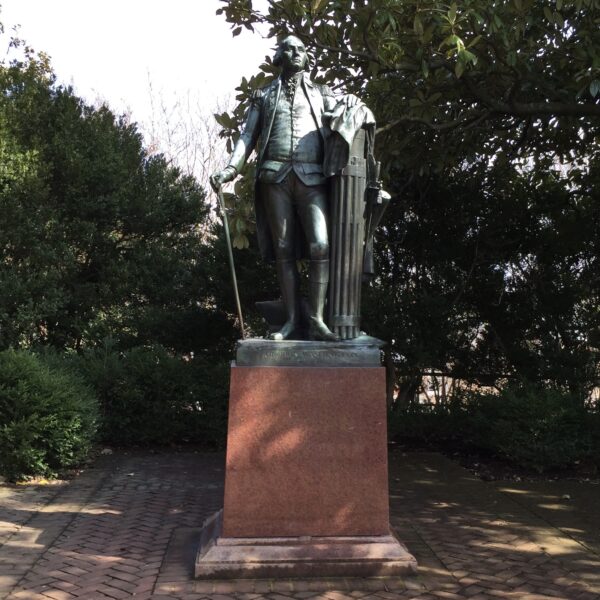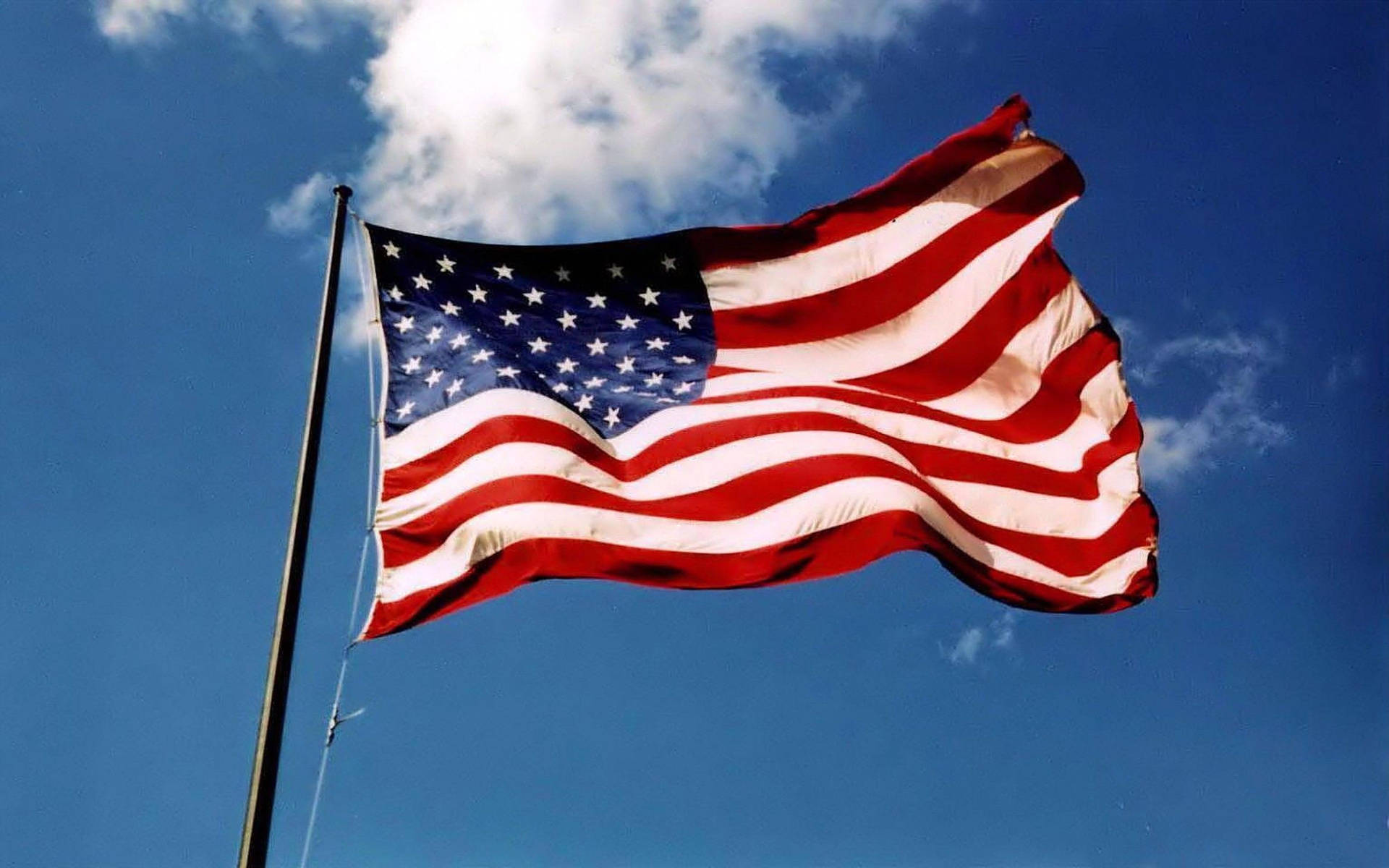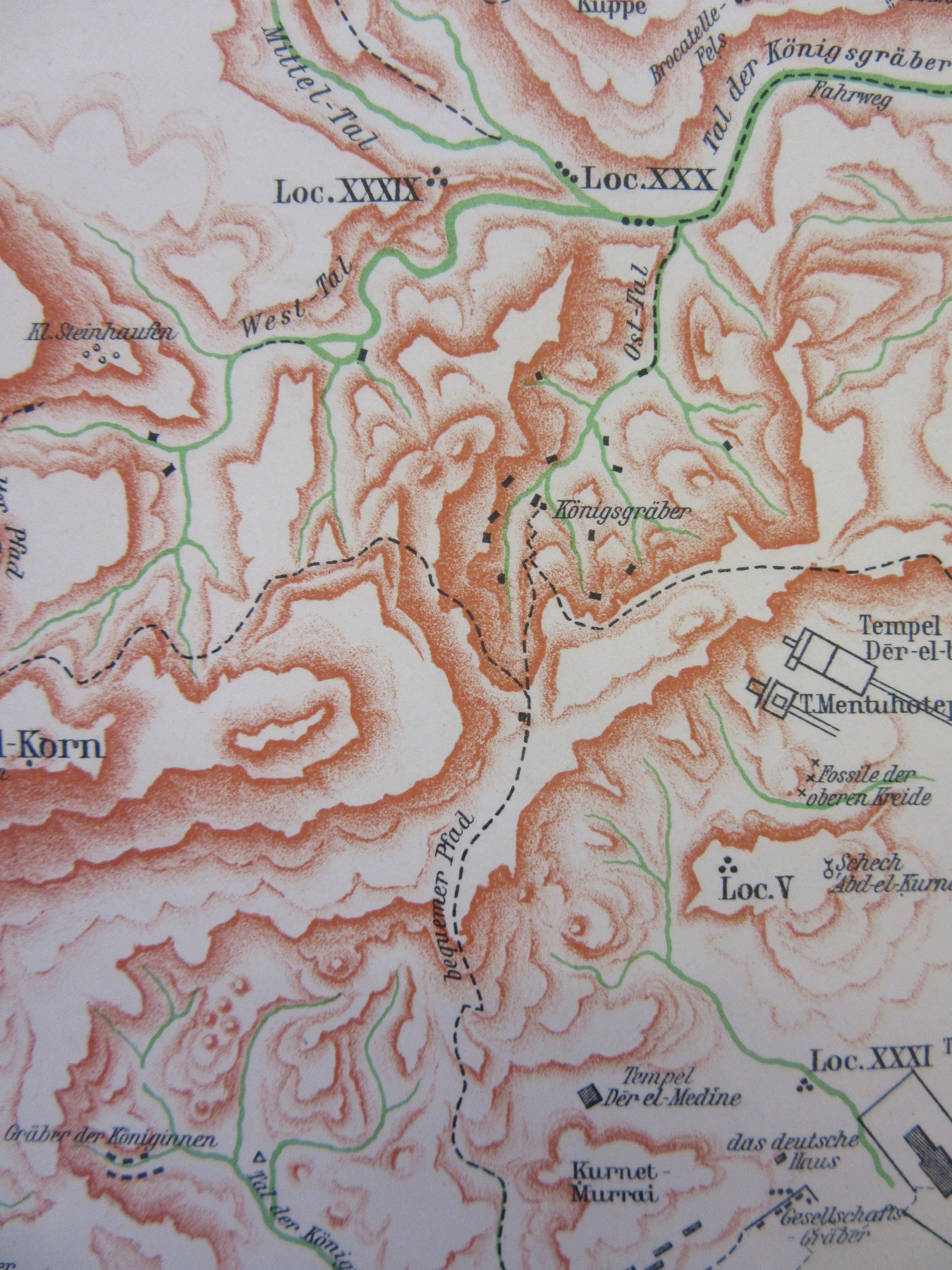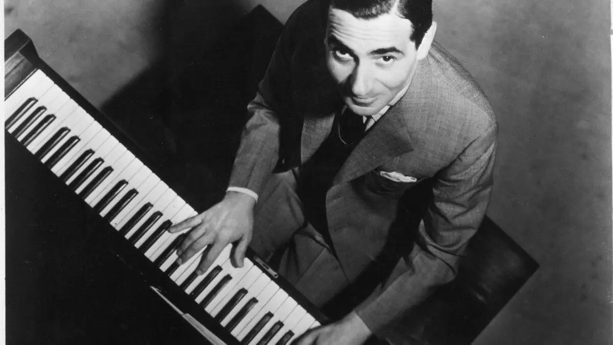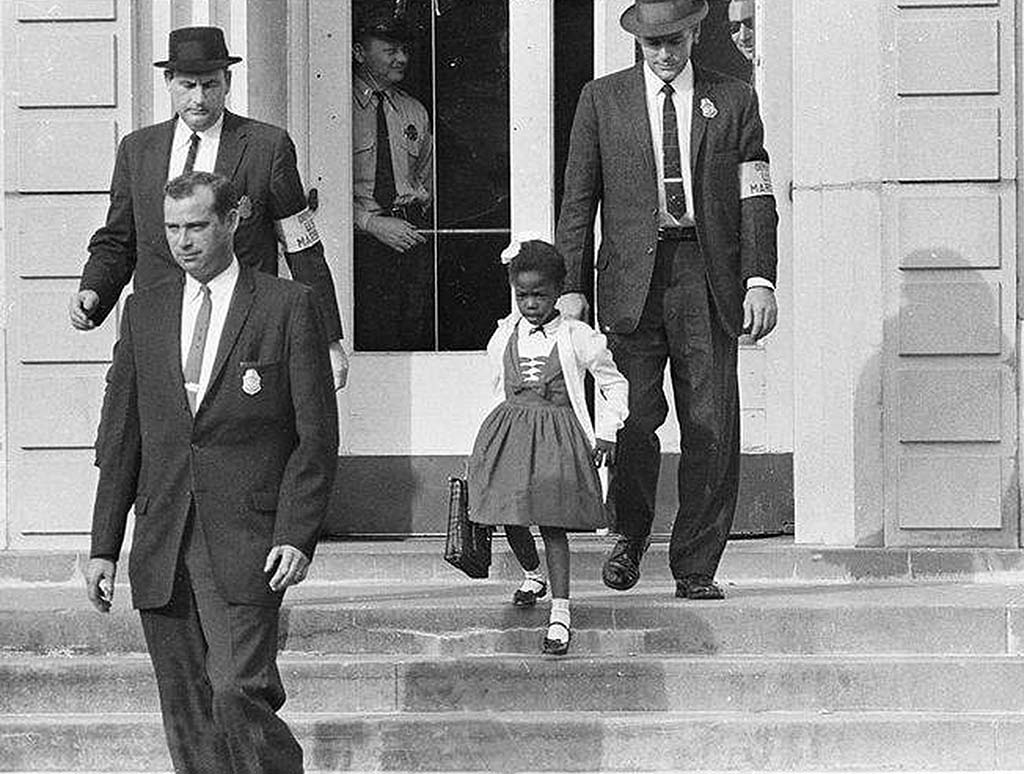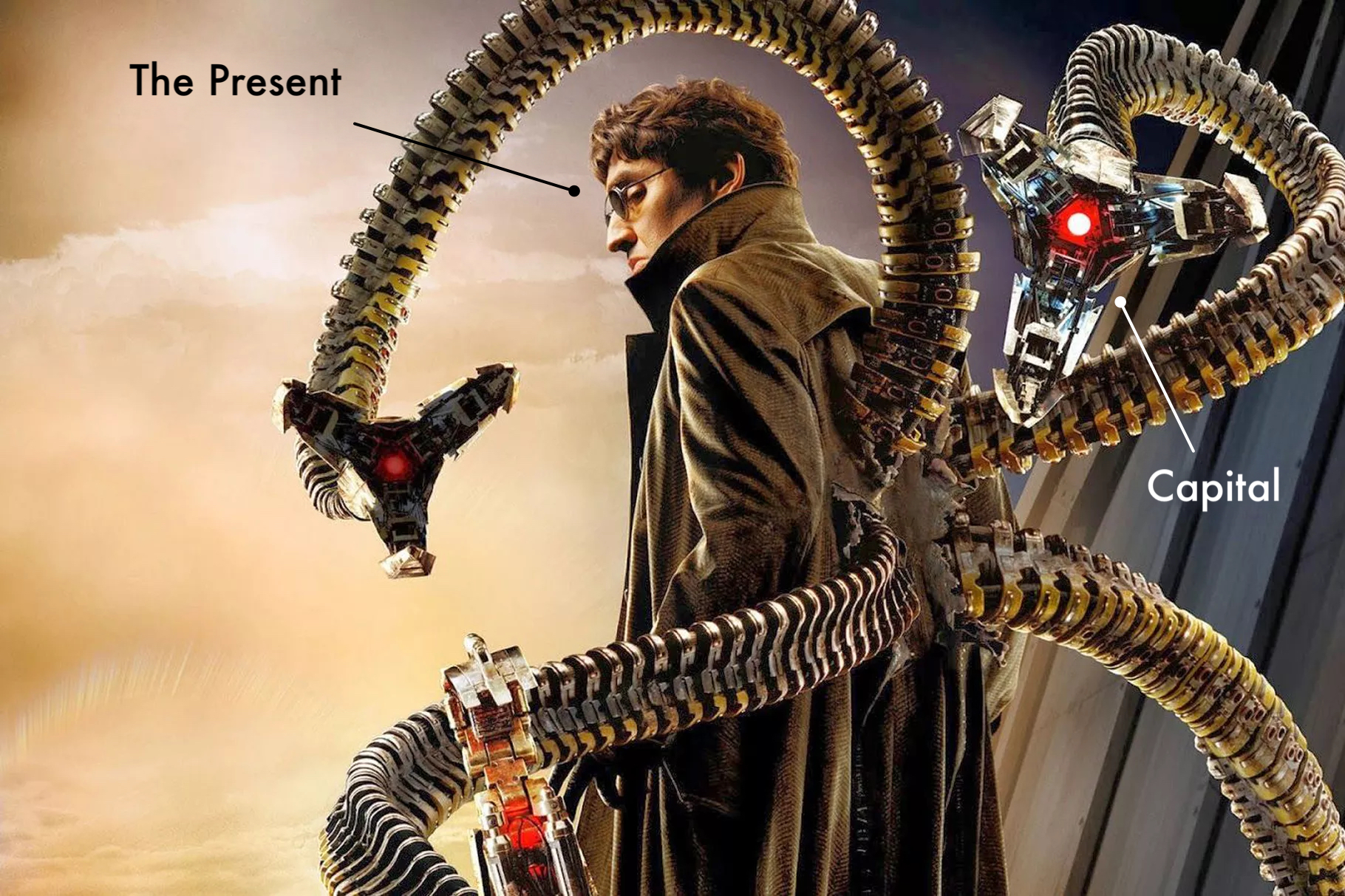I’ve just finished Sam Tanenhaus’s Buckley, which is magisterial. I have many, many thoughts, only a few of which I’ll share here.
Buckley’s greatest virtue and greatest vice was loyalty. Again and again we see him behaving with exceptional generosity to friends and family, even when that generosity was costly to him in dollars, in reputation, or in both. Once he came to think of someone as belonging in some way, in any way, to “us,” then it was almost impossible to dislodge his loyalty to them — even when they had, by any serious measure, betrayed that loyalty. Having settled on anything — a spouse, a friend, a house, a belief, a political stance — he couldn’t face abandoning him or her or it.
Buckley begins his book In Search of Anti-Semitism by frankly acknowledging that his own father was an antisemite, though he doesn’t go into any detail. (Tanenhaus does, though, and it’s not pretty.) But immediately after acknowledging his father’s views, he goes on to say that “the bias never engaged the enthusiastic attention of any of my father’s ten children…, except in the attenuated sense that we felt instinctive loyalty to any of Father’s opinions, whether about Jews or about tariffs or about Pancho Villa.” Okay … but what is that “attenuated sense”? The passage goes on without a break, as though to explain:
Seven or eight children in Sharon, Connecticut, among them four of my brothers and sisters, thought it would be a great lark one night in 1937 to burn a cross outside a Jewish resort nearby. That story has been told, and my biographer (John Judis) points out that I was not among that wretched little band. He fails to point out that I wept tears of frustration at being forbidden by senior siblings to go out on that adventure, on the grounds that (at age 11) I was considered too young. Suffice it to say that children as old as 15 or 16 who wouldn’t intentionally threaten anyone could, in 1937, do that kind of thing lightheartedly. Thoughtless, yes, but motivated only by the desire to have the fun of scaring adults! It was the kind of thing we didn’t distinguish from a Halloween prank. None of us gave any thought to Kristallnacht, even when it happened (November 9, 1938 — I was 12, in a boarding school in England), and certainly not to its implications. But then this is a legitimate grievance of the Jew: Kristallnacht was not held up in the critical media as an international event of the first magnitude, comparable to the initial (1948) laws heralding the formal beginning of apartheid or the triggering episodes of the religious wars of the seventeenth century.
The is strangely evasive, except in one respect: Buckley bluntly refuses to distinguish himself from his siblings simply because they burned the cross and he didn’t. Loyalty! If they are to be condemned, then he will share in their condemnation!
But should they be condemned? Should they have known that this was something rather more serious than “a Halloween prank”? Does he expect us to believe that the cross-burning just happened to have been done on a site belonging to Jews and that any other place favored by “adults” would have done just as well? (If not, why does he bring in the “scaring adults” line at all? And why does he include it in a paragraph about the relationship between his father’s antisemitism and the beliefs of his children?)
Does he now, at the time of writing, think it something that should have been seen as a serious offense? Or, rather, that no one could have been expected to take it seriously in 1937 but should have done so after Kristallnacht? Or even that it wouldn’t have been seen as serious in 1938 but on that point Jews have a “legitimate grievance”?
Who can say?
But note that every possibility listed reminds us that Buckley is only seeing this from the perspective of the people who had their “lark,” not the Jews who looked out their hotel window to find a cross burning on the lawn. For them he does not spare a thought. (Something similar occurs in his discussion of Joseph Sobran, a blatant Jew-hater whom Buckley allowed for a long time to write for National Review and dismissed only under significant pressure: when Norman Podhoretz, the editor of Commentary, protested Sobran’s writings Buckley replied that “you are strangely insensitive to the point that his essay is much more damaging to me than it is to you.” I’m the real victim here!)
Similarly: he knew what Joe McCarthy was, knew what terrible sins and crimes he committed, and he was too honest to deny those sins and crimes; but out of loyalty he minimized them and said — well, what he always said from the beginning of his career to the end: The other side is worse and therefore hypocritical. “They” are worse than “we.” The people unjustly smeared by McCarthy simply don’t show up on Buckley’s radar at all.
He took the same approach to Southern racists who thought of themselves are preserving Southern traditions — people like his parents, to whom of course he was loyal. (His father was a Texan and his mother from New Orleans, and they split their time between a home in Connecticut and one in South Carolina. Buckley grew up in both worlds.) In 1959 he wrote a column for National Review that astounds me:
In the South, the white community is entitled to put forward a claim to prevail because, for the time being anyway, the leaders of American civilization are white — as one would certainly expect given their preternatural advantages, of tradition, training, and economic status. It is unpleasant to adduce statistics evidencing the median cultural advantage of white over Negro; but the statistics are there, and are not easily challenged by those who associate together and call for the Advancement of Colored People. There are no scientific grounds for assuming congenital Negro disabilities. The problem is not biological, but cultural and educational. The question the white community faces, then, is whether the claims of civilization (and of culture, community, regime) supersede universal suffrage.
He answers Yes: indeed, “the claims of civilization” justify denying black people the vote. That’s not the astonishing part, though: what strikes me is Buckley’s quite explicit denial of the central claim of the Southern segregationists, which is that blacks are intrinsically and necessarily inferior to whites. Nonsense, Buckley says: “There are no scientific grounds for assuming congenital Negro disabilities.” White culture is superior to black culture because of the “preternatural advantages” granted by “tradition, training, and economic status.” But because it is superior, it should be allowed to rule. Which is no different than saying that a man who steals all my money should be allowed to keep it because he’s richer than I am. The plain old racists have at least the merit of consistency.
Now, in his famous Cambridge debate with James Baldwin in 1965, when a man in the audience shouted that black people in Mississippi should be allowed to vote, Buckley said, “I couldn’t agree with you more.” But then he went on to say “I think actually what is wrong in Mississippi, sir, is not that not enough Negroes are voting but that too many white people are are are voting.” He then went on to suggest an elevation of the standards of voting — presumably by refusing the vote to those unable to pass a civics test — that would dramatically reduce the number of white people allowed to vote but at the same time, given the racial inequities in the Mississippi education system, would certainly reduce by an even greater degree the number of black voters.
In 2004 Buckley told an interviewer: “I once believed we could evolve our way up from Jim Crow. I was wrong: federal intervention was necessary.” A pundit admitting error is a remarkable thing, seen but a few times a century. That is admirable. But I do wonder how he could ever have believed, even in 1959, that people whose entire lives were built on the conviction of white supremacy would somehow “evolve” into something different? I doubt that he ever did believe it, though he may have wished for it. Primarily what he was doing in that column was being loyal to his parents and to their social world.
All that duly noted, I came away from this biography admiring Buckley for some things, and maybe most of all for his commitment to debate, especially on his TV show Firing Line. The very first episode of that show featured the socialist Michael Harrington, and at the end of it Buckley commended Harrington for making the most eloquent defense of President Johnson’s anti-poverty programs that he had ever heard.
And as Tanenhaus notes, Firing Line became the place to go if you wanted to hear what the radical black activists of the Sixties and Seventies — Huey Newton! Eldridge Cleaver! Roy Innis! — actually thought:
Buckley interviewed these activists, and opened his microphones to them, at a time when their exposure on mainstream television was limited to footage of violent demonstrations. “Amazingly,” writes the media historian Heather Hendershot, “a PBS public affairs program designed to convert Americans to conservatism [broadcast] some of the most comprehensive representations of Black Power from [its] era outside of the underground press and other alternative sources.”
(Link added.) That’s pretty cool.
I have a great deal to think through after reading this remarkable book. There may be more thoughts later — I feel that I ought to say more about what Buckley got right, because there were a few things. But for now I’m out of time.

